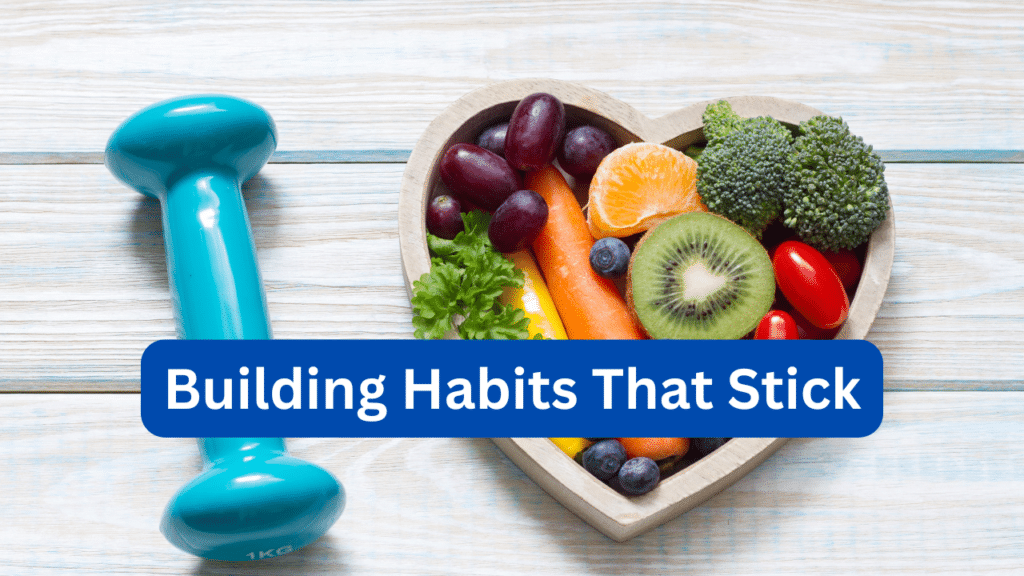Introduction
Ah, the New Year—the time of fresh starts, bold resolutions, and, let’s be honest, a little bit of overenthusiasm. For many, January feels like the perfect opportunity to overhaul their health. You’ve likely heard it (or said it) before: “This is the year I’m going to get fit, eat clean, and finally stick to my goals.”
But here’s the thing: too much ambition, too fast, can lead to burnout, frustration, or even injury. Sure, the idea of going all-in on fitness and nutrition sounds empowering, but if you’re not careful, it can backfire—big time. That’s why this blog is all about hitting the brakes, ditching the all-or-nothing mindset, and learning how to set realistic, sustainable health goals.
We’ll explore common mistakes people make when tackling New Year’s resolutions and why they often fall short by February. Plus, we’ll introduce how wellness blood tests and fitness panels from Walk-In Lab can help you understand your starting point and craft a plan that works for you—not against you. Because when it comes to your health, knowledge really is power.
Ready to make this year different? Let’s get started.

The All-or-Nothing Trap
Every January, gyms are packed, meal prep containers fly off the shelves, and social media is flooded with posts about “new year, new me.” But by the time February rolls around, the enthusiasm often fizzles, leaving people feeling defeated and back at square one. So, what went wrong?
One of the biggest culprits is the all-or-nothing mindset—the belief that success requires total, immediate transformation. While it might feel exhilarating to dive into a six-day-a-week workout plan or swear off sugar completely, this approach can be both overwhelming and unsustainable.
Common Mistakes in the All-or-Nothing Trap:
- Setting Unrealistic Goals:
- “I’m going to lose 20 pounds this month” or “I’ll work out every single day without fail.”
- These types of goals are often unattainable and set you up for disappointment when progress isn’t as rapid as you’d hoped.
- Overtraining Right Out of the Gate:
- Jumping into intense workouts without easing in can lead to fatigue, soreness, and even injuries.
- Without proper recovery time, your body can’t adapt, which increases the risk of burnout.
- Adopting Extreme Diets:
- Cutting out entire food groups, skipping meals, or following unsustainable fad diets often leads to nutrient deficiencies and energy crashes.
- Not to mention, these approaches can create an unhealthy relationship with food.
Why It Doesn’t Work:
The problem with the all-or-nothing mindset is that it leaves little room for flexibility. Life happens—you get busy, sick, or just plain tired. And when the rigid plan falls apart, it’s easy to throw in the towel altogether. Instead of progress, this cycle fosters guilt, frustration, and the belief that you’ve “failed.”
A Smarter Approach:
Rather than aiming for perfection, aim for progress. Start small and build from there. For example:
- Commit to three manageable workouts a week instead of six.
- Focus on adding more whole foods to your diet, like veggies and lean proteins, rather than eliminating entire food groups.
- Use data to guide your approach. Walk-In Lab’s wellness blood tests can provide insights into your current health, helping you set realistic fitness and nutrition goals based on what your body needs.
By shifting your mindset and embracing gradual improvements, you’ll not only achieve better results but also set the stage for habits that actually stick.

The Role of Fitness and Nutrition in Long-Term Health
We all know fitness and nutrition are cornerstones of a healthy lifestyle, but it’s how you approach them that makes all the difference. Quick fixes and extreme measures might sound appealing, but they rarely lead to lasting change. The key? Building habits that align with your life and goals—ones you can actually stick to over the long haul.
Small Changes, Big Impact
When it comes to creating sustainable health habits, less is often more. Start with small, manageable adjustments:
- Fitness: If you’re new to working out, don’t dive into hour-long daily sessions. Instead, try 20-30 minutes of moderate activity three times a week. Once this feels natural, you can gradually increase intensity or frequency.
- Nutrition: Instead of following a restrictive diet, focus on balance. Add more fruits, vegetables, and lean proteins to your meals without cutting out foods you enjoy.
These incremental changes not only feel less overwhelming but also build momentum over time. Remember, consistency beats intensity when it comes to long-term success.
The Power of Balance
Extreme approaches to fitness and nutrition—like daily two-hour workouts or cutting out carbs entirely—are not only unsustainable but can also harm your physical and mental well-being. Balance is crucial:
- In Fitness: Mix up your activities to include strength training, cardio, and recovery practices like yoga or stretching.
- In Nutrition: Prioritize nutrient-dense foods while still leaving room for indulgences. One “cheat meal” won’t undo your progress, just like one salad won’t fix everything.
Data-Driven Decisions for Better Results
One way to ensure your approach is balanced and effective is by using data to guide your decisions. This is where tools like Walk-In Lab’s wellness panels can be a game changer. These tests provide insights into your body’s unique needs, including:
- Vitamin and Mineral Levels: Identify deficiencies that could be affecting your energy or performance.
- Cholesterol and Blood Sugar: Track markers that influence your overall health and fitness capacity.
- Hormone Balance: Understand how hormones like cortisol and testosterone impact your recovery, metabolism, and muscle growth.
With this information, you can tailor your fitness and nutrition plan to what works best for your body, setting yourself up for success from the start.

Common Fitness and Nutrition Resolution Mistakes
Even with the best intentions, it’s easy to fall into traps that derail progress on your New Year’s fitness and nutrition goals. Recognizing these mistakes—and knowing how to avoid them—can save you from frustration and help you stay on track.
Overtraining Without Recovery
When motivation is high, it’s tempting to push your body to its limits. However, doing too much too soon can lead to injuries, chronic fatigue, and even setbacks in your fitness journey.
- Signs You’re Overtraining: Persistent soreness, declining performance, irritability, and trouble sleeping.
- How to Avoid It: Build rest and recovery days into your routine. Recovery isn’t slacking—it’s when your muscles repair and grow.
Focusing Solely on the Scale
For many, weight loss is the ultimate goal, but the number on the scale doesn’t tell the whole story. You might lose inches, gain strength, or improve endurance—all of which are meaningful progress.
- What to Focus On Instead:
- How your clothes fit.
- Energy levels throughout the day.
- Strength, stamina, or flexibility gains.
- Pro Tip: Use Walk-In Lab’s fitness and sports tests to track health markers like muscle recovery and metabolic efficiency, offering a more complete picture of your progress.
Skipping a Health Baseline Check
Jumping into a new fitness program without understanding your current health can lead to suboptimal results—or worse, exacerbate existing issues. For instance, deficiencies in key nutrients or hormonal imbalances can make it harder to achieve your goals.
- Why It Matters: A wellness blood test can uncover conditions like:
- Low iron levels, which affect energy and endurance.
- Vitamin D deficiency, which impacts recovery and immune function.
- Thyroid imbalances, which influence metabolism.
- How Walk-In Lab Helps: Their wellness and fitness panels provide critical insights into your health, helping you create a plan tailored to your needs.
All or Nothing Nutrition Plans
Extreme diets, like cutting out entire food groups or sticking to a restrictive calorie limit, often lead to quick burnout. You might feel deprived, fatigued, and more likely to binge later.
- A Better Strategy:
- Focus on moderation: Balance indulgences with nutrient-dense foods.
- Think “addition” instead of “subtraction”: Add more vegetables, lean proteins, and whole grains rather than fixating on what to cut out.
Comparing Yourself to Others
Social media is full of fitness influencers showcasing their “perfect” routines and bodies. Comparing your journey to theirs can be demotivating and unrealistic.
- Remember: Your body, schedule, and goals are unique. Focus on your progress and what works for you.
- Bonus Tip: Using data-driven tools like Walk-In Lab’s tests can help you measure success based on your individual health, not someone else’s Instagram feed.
Turning Mistakes Into Wins
Mistakes are part of the learning process, but the key is to catch them early and adjust your approach. By focusing on rest, moderation, and a clear understanding of your body’s needs, you’ll be well on your way to turning those New Year’s resolutions into lasting results.

How Wellness Blood Tests Can Support Your Goals
Setting fitness and nutrition goals is a great way to start the year, but do you know where your health stands right now? Without a clear picture of your baseline, it’s like trying to navigate a new city without a map. This is where wellness blood tests can become your secret weapon for success.
Why Testing Matters
Your body is unique, and what works for someone else may not work for you. By identifying specific health markers, wellness blood tests provide critical insights to help you create a personalized plan.
- Understand Deficiencies: Low levels of vitamins like B12 or D could leave you feeling fatigued or hinder your recovery.
- Monitor Health Risks: Unchecked cholesterol, blood sugar, or thyroid issues can sabotage your progress or even make certain workouts unsafe.
- Optimize Performance: Hormonal imbalances, such as elevated cortisol or low testosterone, can affect everything from energy levels to muscle growth.
Walk-In Lab: A Game Changer for Your Wellness Goals
Walk-In Lab offers a variety of tests designed to support your fitness and nutrition journey. Here’s how they can help:
- Wellness Panels:
- Comprehensive tests to evaluate overall health, including cholesterol, glucose, and key vitamins.
- Ideal for anyone starting a new fitness or nutrition program to ensure there are no underlying health issues.
- Fitness and Sports Tests:
- Focused on performance metrics, these tests measure markers like:
- Cortisol Levels: Too much stress can slow recovery and hinder performance.
- Testosterone Levels: Critical for muscle building and energy.
- Electrolyte Balance: Essential for endurance and hydration.
- Perfect for athletes or those ramping up their fitness routines.
- Focused on performance metrics, these tests measure markers like:
- Nutrition Panels:
- Identify deficiencies in critical nutrients like iron, magnesium, and vitamin D.
- Helps tailor your diet to what your body actually needs, avoiding unnecessary supplements or restrictive eating plans.
How Testing Fits Into Your Routine
Here’s an example of how incorporating wellness testing can support your goals:
- Step 1: Start with a wellness panel to get an overview of your health.
- Step 2: Based on your results, adjust your fitness routine and diet. For instance, if your tests show low iron, focus on adding iron-rich foods like spinach and lentils.
- Step 3: Use fitness and sports tests to track progress over time, like improved hormone levels or better recovery rates.
The Long-Term Benefits
Not only do these tests help you make smarter choices, but they also prevent guesswork. By aligning your efforts with your body’s actual needs, you can:
- Avoid burnout by knowing when to push harder and when to rest.
- Achieve better results in less time with a targeted approach.
- Stay motivated by tracking measurable progress beyond just the scale.
By using Walk-In Lab’s wellness and fitness panels, you’re investing in a strategy that sets you up for success—not just for January but for the long run. Your health is your foundation, so why not start with a solid one?

Sustainable Fitness and Nutrition Strategies
When it comes to fitness and nutrition, the key to success is creating habits that fit seamlessly into your life. Instead of going all-in and burning out, focus on small, consistent actions that build momentum over time. Let’s explore practical strategies for making your New Year’s health goals sustainable and enjoyable.
Set SMART Goals
Vague resolutions like “get fit” or “eat healthier” are hard to stick to because they lack clarity. Instead, use the SMART framework:
- Specific: Define exactly what you want to achieve. Example: “Run a 5K in three months.”
- Measurable: Track progress with clear benchmarks. Example: “Increase my running distance by 0.5 miles each week.”
- Achievable: Start with goals that stretch you but are still realistic.
- Relevant: Align goals with your personal priorities, not societal pressures.
- Time-bound: Set a deadline to create urgency.
Prioritize Recovery
Rest is often overlooked in the quest for better health, but it’s just as important as exercise and nutrition.
- Why It Matters: Recovery is when your muscles repair, your energy replenishes, and your body adapts to new challenges.
- How to Recover Effectively:
- Incorporate rest days into your workout routine.
- Practice active recovery with low-intensity activities like walking or yoga.
- Prioritize sleep to enhance muscle repair and hormonal balance.
Fuel Your Body, Don’t Punish It
Extreme calorie cutting or skipping meals can lead to fatigue, muscle loss, and decreased motivation. Instead, focus on fueling your body to perform its best.
- Balanced Nutrition:
- Combine lean proteins, healthy fats, and complex carbs in every meal.
- Avoid obsessing over “good” or “bad” foods—focus on variety and moderation.
- Listen to Your Body: Eat when you’re hungry and stop when you’re satisfied.
Track Progress Objectively
Relying solely on the scale for feedback can be discouraging, especially when progress isn’t linear. Diversify how you measure success:
- Fitness Metrics: Track endurance, strength, or flexibility improvements.
- Wellness Testing: Use Walk-In Lab’s panels to monitor key health markers like hormone levels, vitamin deficiencies, and recovery capacity.
- Non-Scale Victories: Celebrate milestones like fitting into old clothes or completing a challenging workout.
Celebrate Small Wins
Every step forward is worth celebrating. Acknowledge your progress, no matter how small, to stay motivated and positive.
- Example: “I made it to the gym three times this week” or “I added an extra serving of veggies to dinner.”
- Reward yourself with something non-food-related, like new workout gear or a relaxing spa day.
Long-Term Success is a Journey
Sustainability isn’t about perfection—it’s about consistency. By focusing on small, manageable changes, prioritizing recovery, and using data like wellness blood tests to guide your efforts, you can create a health routine that feels rewarding and achievable.
Remember, the goal isn’t to be perfect; it’s to make progress, one step at a time.

Tying It All Together
By now, it’s clear that overdoing your New Year’s health goals isn’t the secret to success. Instead, it’s about embracing a sustainable mindset and creating habits that align with your unique needs. This shift in perspective can be the difference between falling off the wagon by February and achieving long-term health and wellness.
A New Way to Approach Health Goals
Instead of thinking about health as a sprint, think of it as a marathon. Small, consistent changes build the foundation for lasting success. Here’s how to tie everything together:
- Start Where You Are:
- Use data from Walk-In Lab’s wellness and fitness panels to understand your health baseline.
- Build a plan that matches your current fitness level and nutritional needs.
- Focus on Progress, Not Perfection:
- Celebrate every milestone, no matter how small. Each step forward is a victory.
- Remind yourself that setbacks are normal. The key is to learn from them and keep moving forward.
- Prioritize Your Well-Being:
- Listen to your body. If you’re feeling drained or sore, give yourself permission to rest.
- Incorporate balance into your routine. Fitness, nutrition, recovery, and mental health are all equally important.
- Use Data to Stay on Track:
- Revisit your wellness test results periodically to track your progress.
- Adjust your fitness and nutrition plan as your body adapts and your goals evolve.
Why This Year Will Be Different
This year isn’t about chasing quick fixes or unattainable ideals—it’s about becoming the healthiest version of yourself, on your terms. Whether you’re a seasoned athlete or just starting your fitness journey, taking a thoughtful, informed approach sets you up for success.
Wellness blood tests and fitness panels from Walk-In Lab are powerful tools to guide you. They provide clarity, eliminate guesswork, and ensure that your efforts align with what your body truly needs.
A Final Thought
Your health journey doesn’t need to be perfect, but it does need to be yours. By focusing on sustainable habits, listening to your body, and leveraging tools like wellness testing, you’ll make this year your healthiest yet. Remember, real change takes time, and every step forward counts.
Let’s make 2025 the year you thrive—one realistic goal at a time.

Conclusion: Start Your Journey Today
As the excitement of the New Year settles, it’s the perfect time to focus on creating a health plan that works for you—not against you. Remember, the key to achieving your fitness and nutrition goals is consistency, balance, and a deep understanding of what your body truly needs.
By incorporating small, sustainable changes, celebrating progress, and using tools like Walk-In Lab’s wellness and fitness panels, you can make 2025 the year of lasting health and wellness. These tests provide the clarity and confidence you need to craft a personalized plan that aligns with your unique needs and goals.
Don’t leave your health to guesswork. Take the first step today by scheduling a wellness blood test from Walk-In Lab. Whether you’re just starting out or fine-tuning your routine, knowing your baseline can set you up for success.
Because when it comes to your health, slow and steady really does win the race. Here’s to making this your healthiest, happiest year yet—one step at a time.

